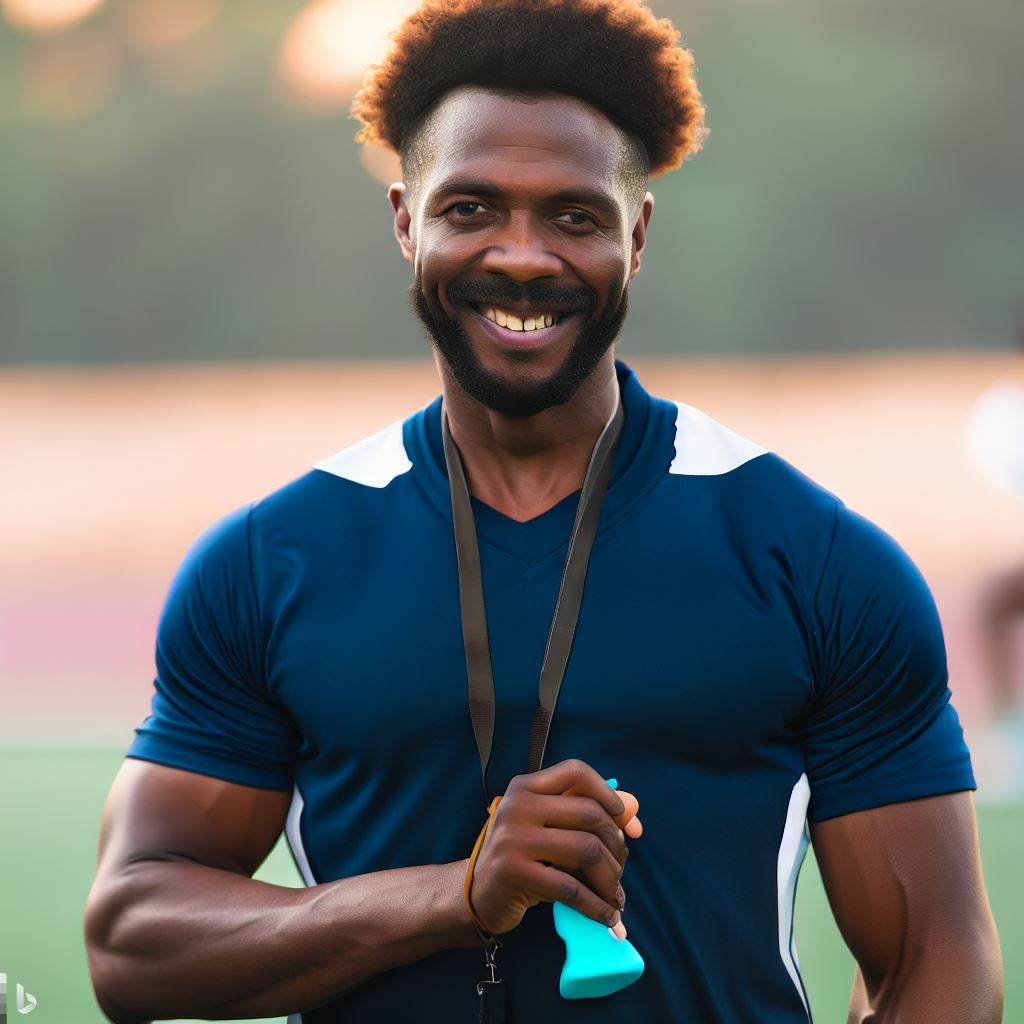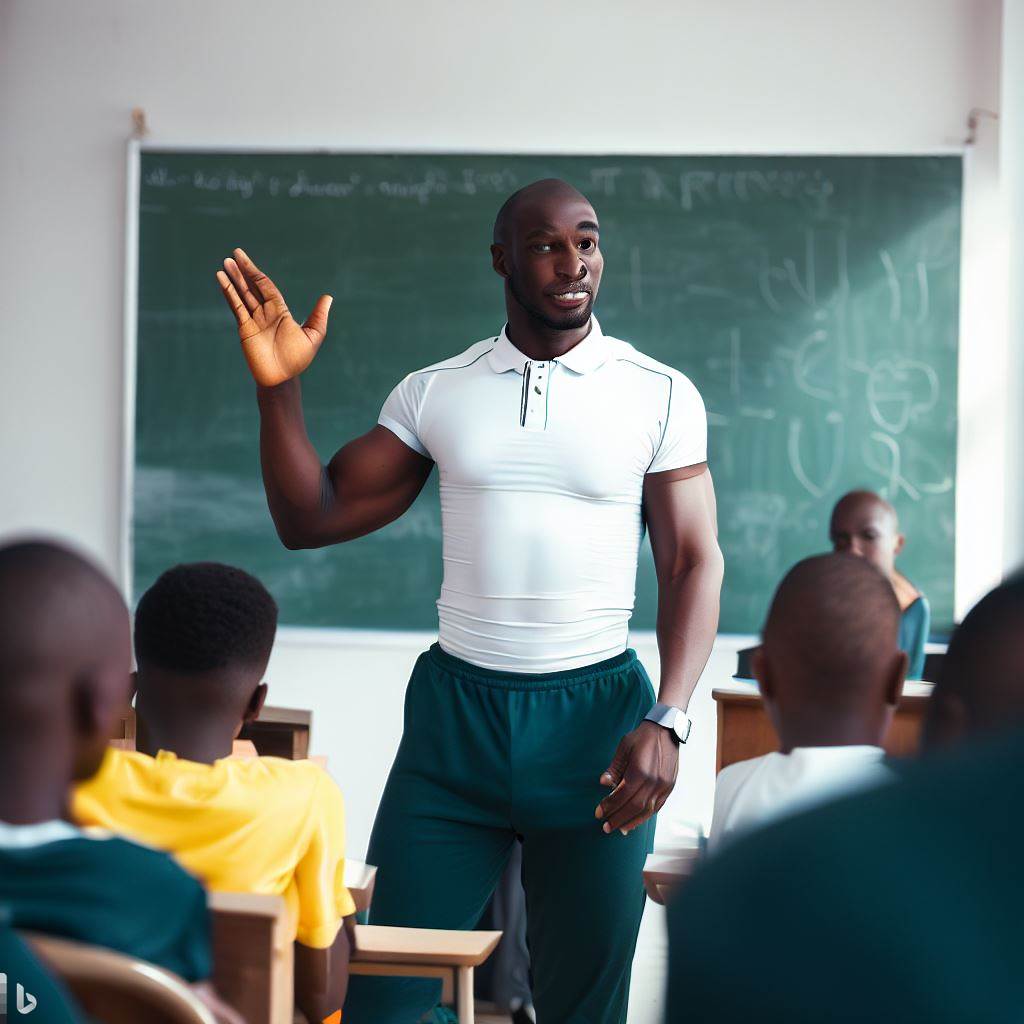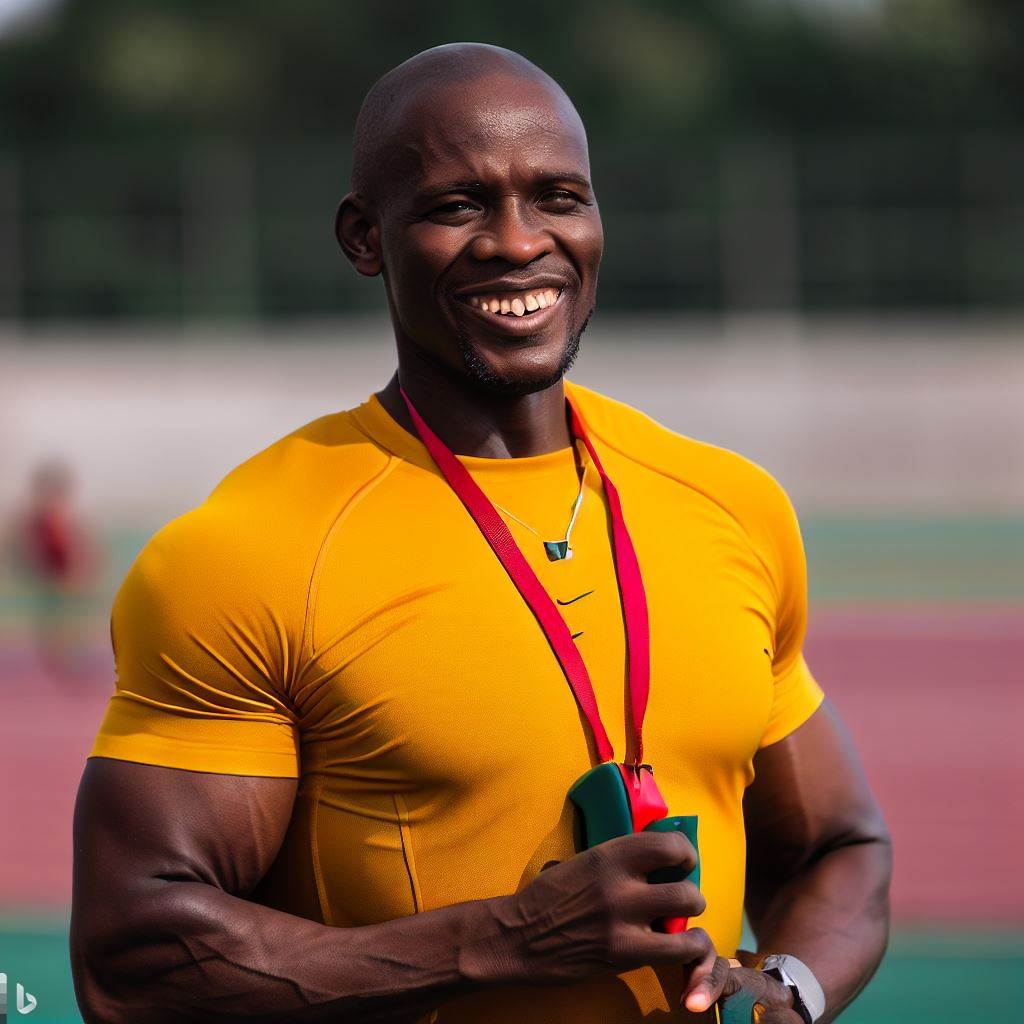Introduction
Physical education careers play a vital role in promoting health and wellness in Nigeria.
This article aims to provide a beginner’s guide to physical education careers in Nigeria.
Physical education careers are crucial for fostering physical fitness and healthy lifestyles in individuals.
The purpose of this article is to offer insights and guidance to those interested in pursuing a career in physical education in Nigeria.
By understanding the importance of physical education careers and their role in society, individuals can make informed decisions about their career choices.
Overview of Physical Education Careers
Physical education careers offer a vast array of opportunities for individuals passionate about promoting physical wellbeing.
These careers are specifically dedicated to enhancing physical fitness and overall health in individuals, groups, and communities.
From teachers and coaches to fitness trainers and sports therapists, physical education professionals play a significant role in shaping a healthier nation.
Definition and scope of physical education careers
Physical education careers involve professions that focus on educating individuals about the importance of physical activity, ensuring their safety during exercise, and promoting overall wellness.
These careers encompass teaching, coaching, fitness training, sports therapy, and more.
The objective is to help individuals develop healthy lifestyle habits and achieve optimal physical health.
Growing demand for physical education professionals in Nigeria
Nigeria, like many other countries, is witnessing a surge in health awareness and the importance of staying active.
As a result, there is an increasing demand for physical education professionals who can guide and inspire individuals to adopt physically active lifestyles.
From schools and colleges to sports clubs and fitness centers, the need for qualified professionals is rapidly expanding.
Importance of promoting physical wellbeing in the country
Promoting physical well-being in Nigeria is crucial for enhancing overall health and quality of life.
Regular physical activity reduces the risk of chronic diseases like obesity, diabetes, and heart conditions.
Educating and motivating people to lead active lives is vital for a healthier population. Physical education careers serve multiple societal roles.
School and college physical education teachers educate students on exercise benefits, design curricula, and organize sports events.
They instill lifelong physical activity habits in young individuals.
Coaches and trainers collaborate with athletes and enthusiasts to enhance performance and ensure safe training.
They create tailored programs, offer technical guidance, and monitor progress, fostering competitive excellence.
Fitness trainers play a pivotal role in improving fitness levels and aiding weight loss.
They design personalized routines, provide form instruction, and offer motivation and support.
They prevent injuries and ensure safe workouts.
Sports therapists specialize in treating and rehabilitating sports-related injuries, diagnosing, prescribing treatments, and conducting rehabilitation.
They work closely with athletes, ensuring swift recoveries and averting long-term consequences.
Physical education careers in Nigeria encompass diverse professions dedicated to well-being promotion. Increasing demand underscores the need for prioritizing health and fitness.
By educating, motivating, and guiding, these professionals contribute to a healthier, more active nation.
Read: Trends and Innovations in Athletic Training in Nigeria
Educational Requirements for Physical Education Careers
To pursue a career in physical education in Nigeria, one must meet essential educational criteria.
This involves acquiring a bachelor’s degree in physical education or a related field, fostering fundamental knowledge in anatomy, exercise physiology, and motor development.
The curriculum also encompasses practical exposure through internships and fieldwork, enabling the application of theoretical insights in real-world scenarios.
Selecting an accredited institution is paramount, ensuring adherence to educational standards.
Accredited institutions undergo rigorous evaluations encompassing faculty qualifications, curriculum relevance, and available facilities.
Continuous education and professional growth remain pivotal throughout a physical education career, involving workshops, seminars, and conferences for fresh insights and innovative teaching approaches.
Engaging in professional development facilitates networking, knowledge exchange, and adaptation to technological advancements and research updates.
The significance of continuous education cannot be overstated, preparing professionals to meet evolving student needs and fostering adaptability.
Moreover, it enhances competitiveness and opens avenues for career advancement.
In summary, pursuing a physical education career in Nigeria necessitates meeting specific requirements.
This involves attaining a bachelor’s degree from an accredited institution and actively participating in continuous education and professional development.
By fulfilling these prerequisites, individuals lay a solid foundation for a prosperous career in physical education.
Read: Job Interview Tips for Sports Information Director Aspirants
Types of Physical Education Careers in Nigeria
Physical education offers a wide range of career opportunities in Nigeria.
Whether you are passionate about teaching, coaching, fitness training, or sports management, there are plenty of options to choose from. Here are some of the most common career paths in physical education:
These are just a few examples of the diverse career paths available in physical education in Nigeria.
Each job role comes with its own set of responsibilities and requirements.
Let’s take a closer look at some of these career options:
Physical Education Teacher
As a physical education teacher, your main responsibility is to design and deliver effective physical education lessons to students of different ages and abilities.
You will create lesson plans, organize sports activities and events, and assess students’ progress in physical education.
Sports Coach or Instructor
As a sports coach or instructor, you will work closely with athletes and guide them in developing their sports skills and techniques.
You will create training programs, provide individualized coaching, and analyze athletes’ performance to help them reach their full potential.
Fitness Trainer or Personal Trainer
As a fitness trainer or personal trainer, you will work with clients to help them achieve their fitness goals.
You will design personalized workout programs, provide guidance on nutrition and exercise, and monitor clients’ progress to ensure they stay motivated and make consistent progress.
Sports Management and Administration
In sports management and administration, you will handle various behind-the-scenes tasks related to sports organizations, facilities, and events.
This can include managing budgets, coordinating schedules, overseeing staff, and ensuring the smooth operation of sports programs and facilities.
Research Opportunities in Physical Education
If you are passionate about researching and contributing to the field of physical education, you can pursue opportunities in academia or research institutions.
This can involve conducting studies, analyzing data, and publishing research papers to advance knowledge and understanding in the field.
Ultimately, the choice of career in physical education will depend on your interests, skills, and goals.
It’s important to explore different options, gain relevant experience, and continue learning to excel in your chosen career path.
With the growing importance placed on physical education in Nigeria, there has never been a better time to pursue a career in this field.
Read: Rural vs Urban Athletic Training in Nigeria: A Comparison
Skills and Qualities Needed for Physical Education Careers
To succeed in physical education careers, professionals must possess essential skills and qualities.
Effective communication and interpersonal abilities are vital, facilitating instruction, feedback, and rapport building.
A broad knowledge of sports and fitness is crucial, allowing for program customization and adaptation to student preferences.
Motivation and inspiration skills drive students and athletes towards excellence through achievable targets and positive environments.
Organizational and leadership prowess ensures well-structured lessons and training sessions, maintaining discipline and safety.
Adaptability and flexibility are indispensable for tailoring approaches to diverse needs and handling unexpected challenges.
In Nigeria, excelling in physical education careers demands a multifaceted skill set.
Strong communication, sports knowledge, motivation, organization, leadership, and adaptability are essential for success.
Read: Ethics and Standards in Sports Information in Nigeria

Job Opportunities and Salary Expectation
Availability of physical education jobs in Nigeria
- Nigeria offers various job opportunities in the field of physical education.
- Physical education teachers are in demand in schools, colleges, and universities across the country.
- Private sports clubs and fitness centers also hire physical education professionals.
- Additionally, government initiatives and programs create openings for physical education specialists.
Overview of salary ranges for different positions
- The salary for physical education careers can vary depending on the position and organization.
- Physical education teachers in schools can earn an average salary of ₦900,000 to ₦1,800,000 per year.
- In colleges and universities, the salary range ranges from ₦1,200,000 to ₦2,500,000 annually.
- Coaches and trainers working in sports clubs and fitness centers may earn between ₦1,000,000 to ₦2,500,000 per year.
Factors influencing salary expectations, such as experience and location
- Experience plays a significant role in determining salary expectations in physical education careers.
- Those with more years of experience tend to earn higher salaries compared to beginners.
- Location is another important factor as salaries may vary depending on the region in Nigeria.
- Lagos, Abuja, and Port Harcourt are some areas where salaries are relatively higher.
Essentially, Nigeria provides ample job opportunities for individuals seeking a career in physical education.
Whether you aim to become a physical education teacher, coach, or trainer, there are various organizations and institutions that actively hire professionals in this field.
Salaries in physical education careers vary depending on the position and location.
Teachers in schools, colleges, and universities can expect to earn between ₦900,000 to ₦2,500,000 per year, while coaches and trainers in sports clubs may earn a similar range.
Factors such as experience and location also influence salary expectations. As you gain more experience in the field, your salary potential increases.
Moreover, certain regions in Nigeria offer higher salaries compared to others.
Therefore, individuals interested in physical education careers can explore a range of job opportunities and expect competitive salaries in the Nigerian market.
Challenges and Rewards in Physical Education Careers
Challenges Faced by Physical Education Professionals
- Limited funding and resources make it difficult to provide quality physical education programs.
- Some schools prioritize academics over physical education, leading to reduced class time.
- Physical education professionals often face resistance from students who are not interested in fitness.
- Working in extreme weather conditions can be a challenge for outdoor physical education activities.
- Dealing with injuries and accidents during physical education classes requires quick thinking and response.
- Coordinating with other teachers and staff to schedule physical education classes can be challenging.
- Maintaining discipline and ensuring the safety of students during physical education activities is a constant challenge.
- Keeping up with advancements in sports science and fitness trends requires continuous learning and professional development.
- Physical education professionals may face limited career advancement opportunities within educational institutions.
- Dealing with parents who may have unrealistic expectations or concerns about their child’s physical education.
Satisfaction Gained from Positively Impacting Individuals and Communities
- Physical education professionals have the opportunity to improve the overall health and fitness of individuals.
- By teaching students about the importance of physical activity, professionals can instill lifelong healthy habits.
- Helping individuals achieve their fitness goals and witnessing their progress can be highly rewarding.
- Physical education professionals contribute to reducing the prevalence of sedentary lifestyles and obesity.
- Being able to inspire and motivate students through physical education classes is fulfilling.
- Helping individuals develop important life skills such as teamwork, discipline, and perseverance.
- Physical education professionals play a role in promoting inclusivity and diversity in sports and fitness.
- Contributing to the community by organizing and participating in sports events and competitions.
- Building strong relationships with students and seeing them grow and succeed in various aspects of life.
- Knowing that their work has a lasting impact on the overall well-being of individuals and communities.
Personal Growth and Fulfillment in the Field
- Physical education careers offer opportunities for personal growth and self-improvement.
- Constantly learning about new fitness techniques and applying them in practice.
- Developing strong leadership skills through managing and organizing physical education programs.
- Overcoming challenges and finding innovative ways to engage students in physical activity.
- Gaining a deeper understanding of the human body and its capabilities through sports and fitness.
- Becoming a role model for students and inspiring them to pursue a healthy and active lifestyle.
- Developing effective communication and teamwork skills through collaborations with colleagues.
- The field of physical education provides opportunities for personal satisfaction and fulfillment.
- Improving problem-solving skills by adapting physical education programs to the needs of different individuals.
- Continuous professional development in the field of sports science and physical education.
Lastly, physical education careers in Nigeria come with their fair share of challenges, but the rewards make it a fulfilling profession.
Despite limited resources and resistance from students, physical education professionals have the opportunity to positively impact individuals and communities by promoting fitness and healthy habits.
The personal growth and fulfillment experienced in this field make it a rewarding choice for those passionate about sports and physical activity.
Additional Resources and Support for Aspiring Physical Education Professionals
As an aspiring physical education professional in Nigeria, there are several additional resources and support systems available to help you succeed in your career.
These resources include professional organizations and associations, networking events and conferences, and online resources, courses, and certifications.
- Professional organizations and associations for physical education in Nigeria: Joining a professional organization or association can provide you with valuable networking opportunities, access to resources, and professional development opportunities.
- Networking events and conferences: Attending networking events and conferences related to physical education can help you connect with other professionals in the field, gain insights from experienced speakers, and learn about the latest trends and research.
- Online resources, courses, and certifications: The internet offers a wealth of resources for aspiring physical education professionals. You can find online courses and certifications that can enhance your knowledge and skills in specific areas of physical education. Websites like Coursera, Udemy, and Khan Academy offer courses on various topics related to physical education.
By taking advantage of these additional resources and support systems, you can further develop your career in physical education in Nigeria and stay updated with the latest industry practices.
Conclusion
In summary, this article has provided a comprehensive beginner’s guide to physical education careers in Nigeria.
We have discussed the various career paths in this field, including teaching, coaching, sports management, and fitness training.
Throughout the article, we have highlighted the numerous opportunities and benefits that come with pursuing a career in physical education.
It is evident that this field offers immense potential for personal growth, professional development, and contributing to the well-being of individuals and communities.
If you have a passion for sports, fitness, and education, we encourage you to consider physical education as a career choice in Nigeria.
Not only can you make a positive impact on others’ lives, but you can also enjoy a rewarding and fulfilling career.
Take the first step towards exploring your options by researching educational institutions, certifications, and job opportunities available in Nigeria.
Follow your passion and pursue the path that aligns with your interests and goals.
Remember, your journey in physical education can lead to a successful and satisfying career.
So, take action today and embark on a rewarding path that will allow you to make a difference while doing what you love!




